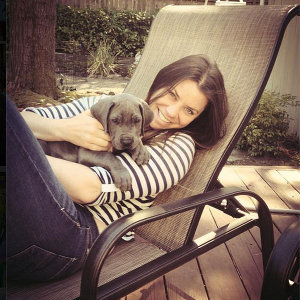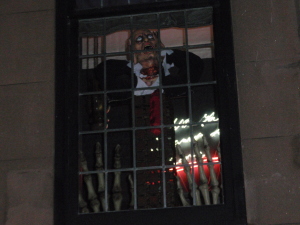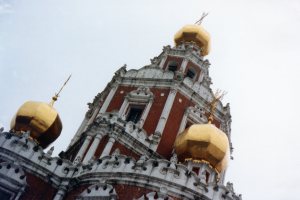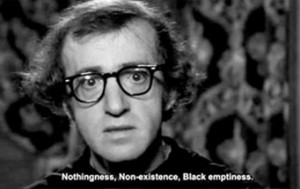 Brittany Maynard died tragically young, but with dignity and in as much control as an unkind fate had allowed her, taking advantage of the law in Oregon that allowed her to obtain a prescription for the barbiturates that would end her life before cancer did its terrible worst.
Brittany Maynard died tragically young, but with dignity and in as much control as an unkind fate had allowed her, taking advantage of the law in Oregon that allowed her to obtain a prescription for the barbiturates that would end her life before cancer did its terrible worst.
Writing in the Dallas News, Marcia Angell, the widow of a physician denied similar relief thanks to the cruelty of Massachusetts law, makes a powerful case for other states to follow Oregon’s example.
Here’s an extract:
Whereas hastening an inevitable death was once regarded almost exclusively as a medical issue, we are beginning to focus on what patients want, on their right to self-determination. And people are increasingly asking why anyone — the state, the medical profession, religious leaders — would presume to tell someone else that they must continue to die by inches, against their will….
The Supreme Court has twice maintained that that’s a medical question and as such should be left to the states, which regulate medical practice. The medical profession, meanwhile, has been among the main obstacles to more laws like Oregon’s. The American Medical Association’s official policy is that physician-assisted suicide is “fundamentally incompatible with the physician’s role as healer.” One possible explanation for this opposition, particularly among palliative care specialists, is that assisted dying underscores their limitations in dealing with suffering at the end of life.
But that stance puts the focus in the wrong place. This is not primarily about physicians or their self-image; it’s about patients — specifically patients for whom healing is no longer possible. We give patients the right to hasten their deaths by refusing dialysis, mechanical ventilation, antibiotics or any other life-sustaining treatment. Why deny them what is essentially the same choice, especially since it is limited to terminally ill patients?
In 2012, I was among the lead petitioners to put a Death With Dignity law on the ballot in Massachusetts, and I campaigned hard for its passage. Until a month before the election, polls showed overwhelming support. But in the final weeks, the Catholic Church, both nationally and within the state, began pouring money into TV ads implying that people would be coerced into killing themselves, and physicians and pharmacists would be required to help them. After opponents outspent proponents by about 5 to 1, the referendum lost.
This, of course, is the same Roman Catholic Church that has spent so much of the last year or so talking about ‘religious freedom’. It’s important to understand that’s a concept where both words matter. When the church makes that argument, it is not arguing for the cause of liberty in any generalized sense. Rather it is insisting on the right, under certain circumstances, of churches and their followers to assert their beliefs over the general law.
There is something very appropriate in the way that Thomas More was often cited as an inspiration for the church’s campaign. Contrary to what his modern apologists, papal and otherwise, have liked to claim, More was no supporter of freedom of conscience. What he wanted was his conscience to prevail over the consciences of others, consciences for which he had little regard. Dissent was not an option.
It’s not too difficult to draw a line between More and the way that the Catholic Church (aided by other religious groups) did so much in Massachusetts to insist that its views on ‘assisted suicide’ should be imposed on others. Of course, that imposition was the result of a democratic vote. That matters. Nevertheless the fact that the church did so much to suport that imposition on all the people of Massachusetts, regardless of religious affiliation or their own views on this matter, is a useful reminder of its distinctly narrow notion of freedom.
Meanwhile the National Catholic Reporter writes:
The Vatican’s top ethicist condemned Brittany Maynard’s decision to end her life, saying there was no dignity in her physician-assisted death…
“Assisted suicide is an absurdity,” Carrasco de Paula told the Italian news agency ANSA. “Dignity is something different than putting an end to your own life….”
“Killing yourself is not a good thing; it’s a bad thing because it says no to life and to all that means in relation to our duty in the world and to those close to us,” Carrasco de Paula said.
The fact that life was effectively saying no to Ms. Maynard seems to have passed de Paula by, as does the fact that Ms. Maynard’s decision appears to have been supported by her loved ones. As to his remark about duty, it says a lot that de Paula doesn’t say to whom this “duty” is owed.
And of course the slippery slope makes its inevitable appearance in an argument that ignores the fact that the terminally ill have already slid down it:
Carrasco de Paula said assisted suicide was also dangerous because it offered a potential “solution” for a society that sought to abandon the sick and quit paying the costs of their illnesses.
De Paula, who is head of the Pontifical Academy for Life, an institution described by the NCR as being responsible “for ethical issues in the Catholic church” is, of course, entitled to his views. They are what they are, and they are unlikely to change. Roman Catholic teaching is what it is. But so is its refusal to respect the freedoms of those with which it disagrees. Its behavior in Massachusetts was a disgrace.
Maynard’s closing statement included this:
“Today is the day I have chosen to pass away with dignity in the face of my terminal illness.”
And so she did. RIP.









